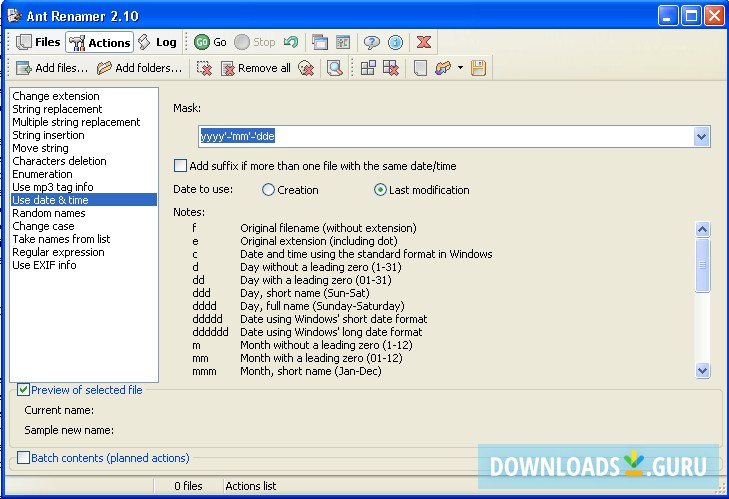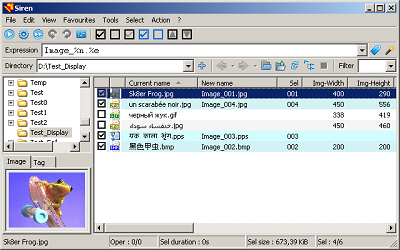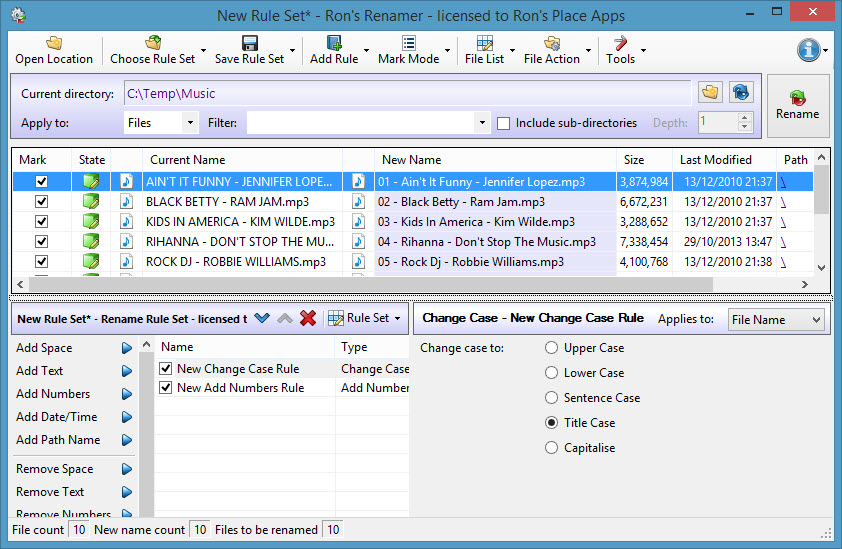
To replace something repeat the steps and include the pattern you want to replace it with in the second step. Use this as a workaround in case you made a mistake. Essentially, we're undoing the change we made. Enter the suffix in the "Find what field" and leave the "Replace with" field blank. In one of our previous examples, we added the suffix - January 2020 to some documents. It can also be used to delete part of file names. This option allows you to find a part of the name and replace it with something else. In case your filenames start with a lower case, you have an option to shift those to Uppercase. It allows you to change the entire filename (including the extension) to uppercase or lowercase, or just the filename, or the extension alone. The Change Case menu contains various options that can be used to shift the naming style of a file. This isn't recommended unless you know that the files you're renaming have the wrong extension. Suffix options include adding a sequence number (increments by 1), file size in bytes or KB, the folder the files are stored in, date modified, time modified, current date or current time.Ĭlick the checkbox next to the word "Change" to modify the extension of a selected file. You can use them to remove numbers or letters from file names. Renaming templatesįocusOn Renamer has many built-in templates that are handy to rename files quickly.


Or if you have the storage space to spare, backup the folder before renaming (and delete it if there aren't any issues). It may be a good idea to take a screenshot of the folder containing the files you are working with, for reference. Warning: There is no undo option, so you may want to double-check the results. Hit the Rename button to apply the changes. This makes it easier to search when you need them. If you have a folder with images taken at a party or vacation, and they have names like IMG_20170725, you can change it to something meaningful like John's Birthday Party. If you wish to rename the files completely, don't use in the name. Let's look at a simple renaming procedure: I have a directory which has many documents and I want to add a suffix to indicate the month I created them. These options can be customized, say you want to start with number 10 or 85, or to increment the number by 5 or 100. The Increment number will increase the number of each file by 1. In case of similarly named files, the Start Num option will assign the number 1 to the 1st file. This is useful when you want to add a prefix or suffix to the names. signifies that the original file will be retained. Renaming with a prefix or suffixĬlick inside the Name box to enter a custom naming pattern. The arrow keys at the bottom of the window can be used to re-arrange the order of the files. Any renaming option that you choose is instantly reflected in the pane, so you can preview the results of the renaming process in real-time before you decide to apply the changes.

The list can be sorted by name, extension, modified data and file size. The old name, the new name and the folder location of each file is displayed in the pane. So the only way to ditch them is to close the program and restart it. This can get annoying if you accidentally selected some files that you don't want to rename. There is no context menu in the application or a "clear" button in the interface. Here's the weird part: you can't remove files from the list.


 0 kommentar(er)
0 kommentar(er)
